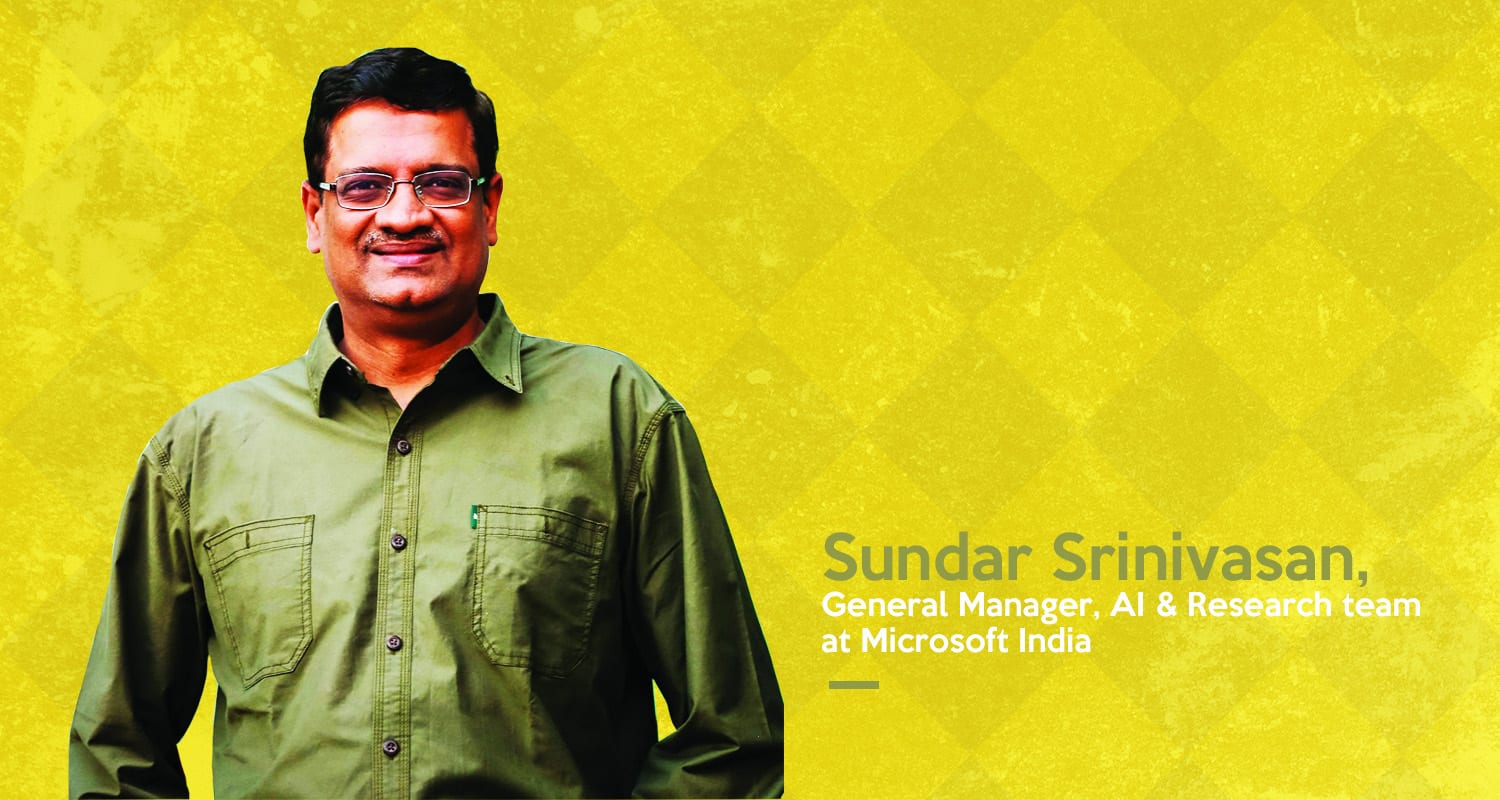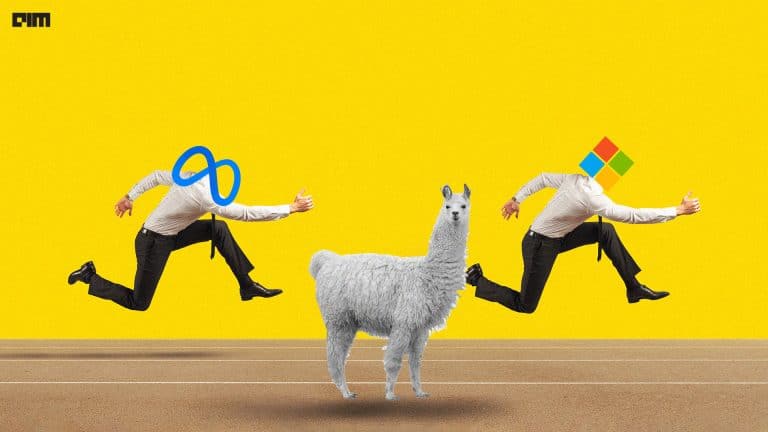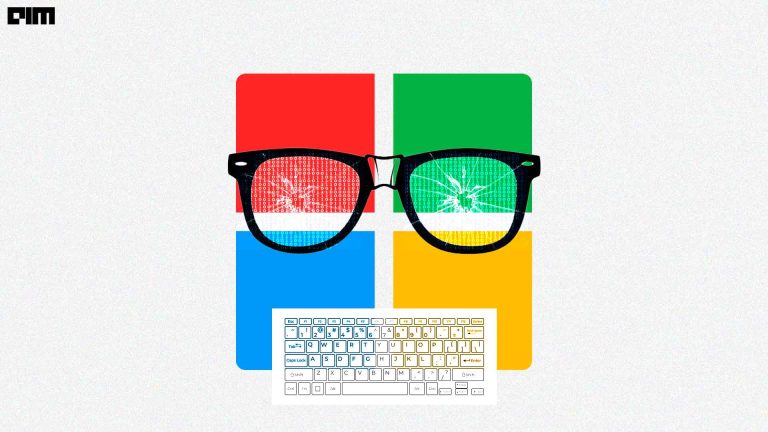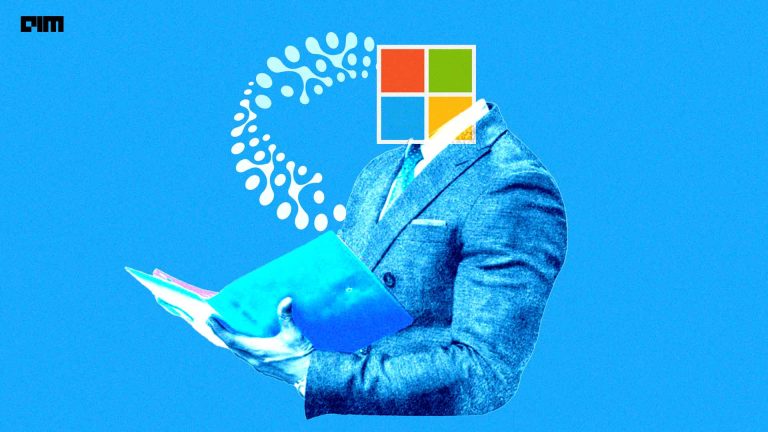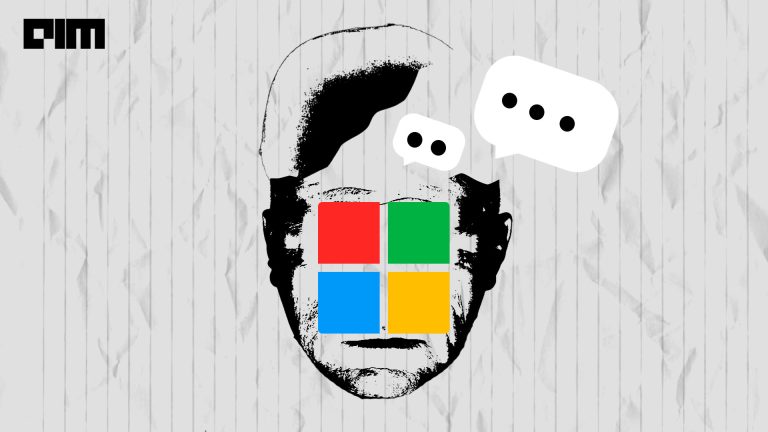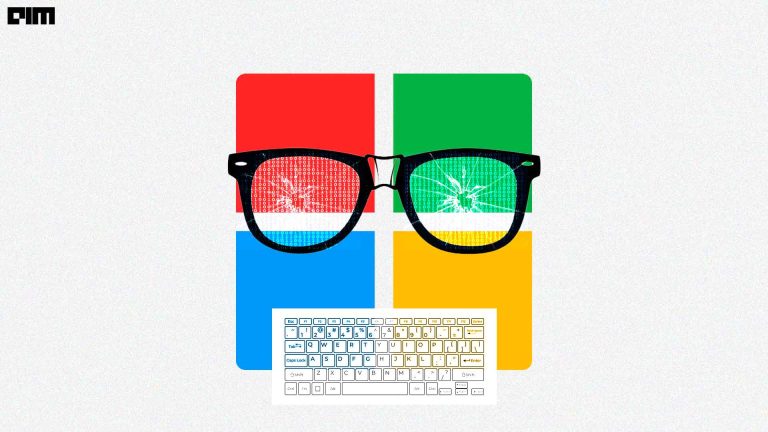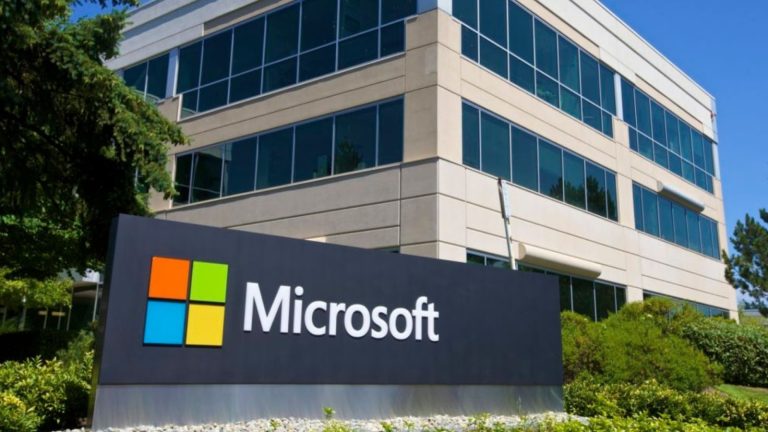Analytics India Magazine caught up with Sundar Srinivasan, General Manager, Artificial Intelligence & Research team at Microsoft India, to understand AI’s impact and its industry applications across the sectors deploying AI-based solutions. Researchers at Microsoft are leveraging the AI tools for a range of services. Srinivasan, an industry veteran has vast experiences in building consumer products, cloud services at scale and building intelligent services using AI. Talking about the future of AI, he revealed how AI can help us in the future and what is its impact on human intellectual quotient.
AIM: What are some of the practical implementations of AI that have revolutionised the way humans are functioning? What are some examples of AI products?
SS: Artificial intelligence has been with us in the real world for a long time. The most visible application of AI is robotics or mechanization using precision robotics in manufacturing. In the recent past, there have been some breakthroughs in techniques like Deep Learning that have expanded the horizon of applications into speech, translation, vision etc. Speech recognition and translation are two examples that are front and centre now and we see them in our everyday life. For example, Bing Translate uses end to end neural models to provide translation services to 60 languages. Speech recognition is used for various commanding scenarios as in Cortana, where you can interact with her via voice.
Image recognition has been used to detect product defects in the past, but it has now evolved into diagnosis, like a highly skilled doctor. Microsoft is working with LV Prasad Institute for prediction and progression of refractive error in children and young adults, and with Apollo for cardiac care. Image recognition is also making its way into consumer products. For instance, Windows Hello has been using face recognition and fingerprint readers for some time now, and recently this tech is migrating to phones as face unlock feature.
These advances have also been used in predictions, from sales forecasting to forecasting sowing dates for Farmers, where for instance Microsoft is partnering with ICRISAT to predict the optimal sowing time for crops. Farmers are seeing nearly 30% yield increases using this tool.
AI also holds the power to fundamentally reinvent how individual businesses run, compete and thrive. We’ve seen the emergence of AI solutions such as digital assistants and intelligent analytics which are now the core to the business.
AI is fast becoming a ubiquitous part of our daily lives. Governments and organizations world over are exploring unique ways to build products and enhance services using AI. As a result, we have started to witness many sectors including agriculture, healthcare and education, utilizing the power of AI, resulting in their rapid progress. Organizations and governments are coming together to ensure that the benefits of technology reach the citizens at large.
AIM: How is AI affecting your life and work? What are some of the AI-based products or services that you rely on personally, the most? Please elaborate on the use cases. (eg chatbot, virtual assistants, phone apps)
SS: There are so many applications, we use without us being cognizant of the fact they are derivatives of AI work. As a daily user of Windows Hello, I have a Surface, you just open the laptop and it auto logs you in by recognizing your face. Apart from that, I use Outlook.com for my email, it auto classifies spam and promotional emails. It also generates cards for emails and calendar entries for emails that have information on package delivery, travel (Airline, Hotels and Car Rentals).
The other thing that is super useful in India is SMS organizer. This Android app helps users get back time by focusing their attention on the most important things. SMS Organizer auto classifies the messages as personal, transactional and promotional messages. It also auto-generates reminders and actionable alerts like bills to be paid and flight alerts. The best part is this is done entirely on the phone which is an excellent example of AI on the edge device.
AIM: What are some of the ways that your company is adopting/providing AI services? Please highlight some use-cases. What are the most important things for customers to be able to adapt to ML? Give us some examples of societal applications where you have used AI.
SS: At Microsoft, we really focus on our mission to empower every person and every organization on the planet to achieve more. AI is one way to help people achieve more, consequently, we strive hard to drive value by infusing AI into our products and services, wherever it makes sense for users. Now how do we allow this capability to be used by third-party customers and the software ecosystem at large? For customers and the developer ecosystem to be able to leverage ML, four things are needed:
1, Data
- Tools to leverage the data and learn from and build ML models
- Specialized machine environment to train the models
- An environment to host and run the models
Microsoft allows users to either use our pre-trained models on Azure cognitive services or bring your own data, store it securely in your private environment, use specialized hardware to train it and then host the models to run it.
Azure provides the full suite of tools to enable all of this.
On the topic of how we use AI to solve societal challenges, allow me to highlight our work in agriculture, multi-language communication, education and healthcare. A few use cases are listed:
- AI for farming: Microsoft and ICRISAT announced the results of the second phase of the pilot of their AI-based Sowing App for farmers. The Sowing App was developed to help farmers achieve optimal harvests by advising on the best time to sow using data about weather conditions, soil quality and other indicators. Farmers can make the best use of this technology without having to incur any capital expenditure or install any sensors in their fields. The programme was expanded to touch more than 3000 farmers across the states of Andhra Pradesh and Karnataka during the Kharif season of 2017 for a host of crops including groundnut, ragi, maize, rice and cotton, among others.
- AI Network in Healthcare: In partnership with LVPEI, Microsoft had launched the Microsoft Intelligent Network for Eyecare (MINE) to apply Artificial Intelligence to help in the elimination of avoidable blindness and scale delivery of eye care services across the planet. This initiative harnesses the combined power of data, cloud, and advanced analytics to drive strategies to prevent avoidable blindness. The initiative which had also been adopted by the state of Karnataka has now expanded into the AI Network for Healthcare to create an AI-focused network in cardiology, in partnership with Apollo Hospitals. The partnership will see work done towards developing and deploying new machine learning models to predict patient risk for heart disease and assists doctors on treatment plans. As a part of the Network, Microsoft recently announced its efforts in partnership with Forus Health to integrate AI-based retinal imaging APIs into Forus Health’s 3Nethra devices using Microsoft Azure IoT Suite, for early detection of diabetic retinopathy, glaucoma & macular degeneration, and help reduce avoidable blindness. This will help technicians identify eye fundus images as well as disease conditions better.
- Interactive Cane: MSR India is working on an AI powered Interactive Cane to aid people with visual impairment. MSR is experimenting by adding sensors to existing canes and adding gesture recognition to enable the cane to provide the user with information that would not otherwise be available. Interestingly, MSR is trying to do this by using low resource sensors that are also intelligent, so that real-time information and feedback is available to the user.
- AI for local language computing: Microsoft has consistently been working towards providing local language computing in Indian languages, since the launch of Project Bhasha in 1998. With the help of its AI technologies, Microsoft is now making translation and speech recognition across several Indian languages in the following ways:
- Microsoft’s SwiftKey, allows text input in as many as 24 Indian languages and dialects including Marwari, Bodo, Santali and Khasi, utilizes AI in the keypads to enable faster predictive writing. It also allows mixed language typing in English and Hindi
- Indian English and Hindi speech recognition is available as part of Microsoft Cognitive Services as well as Bing App for Android
- Text to speech translations currently includes such capabilities in Hindi and Tamil on Microsoft Narrator, on Windows 10
- Microsoft PowerPoint uses AI to translate full presentation decks from English to Hindi, Bangla and Tamil
AIM: What are the areas of life or employment where you would like AI to be more involved (e.g. medicine, mental health care)?
SS: Healthcare is an issue that we all face one way or another. This is a place where there is an opportunity to bring technology to the underserved and alleviate human suffering. Climate change is real and is something that is already impacting us and an area where AI could play a great role in dealing with the impact of these climatic changes, be it in better weather prediction or helping us manage agriculture better.
AIM: Will AI take away the creative thinking and downgrade the intellectual quotient of humans?
SS: We look at AI in an assistive role. While AI has the potential to disrupt every single vertical industry, it also promises to amplify our human ingenuity and help us be more productive. The promise of AI is that knowledge gained from applying analytics to the wealth of data that is available today will enhance any decision-making process with additional intelligence, helping us produce quicker, more effective outcomes.
AIM: Many experts have warned against AI taking over every aspect of our lives. What is your take on that? How true is their fear?
SS: Technology has fundamentally changed the way we consume news, plan our day, communicate, shop and interact with our family, friends and colleagues. Over the next 2 decades, we envision personal digital assistants will be trained to anticipate our needs, help manage our schedule, prepare us for meetings, assist as we plan our social lives, reply to and route communications, and help drive both individual and organizational productivity. However, it is upon us, the larger industry, governments, academia, business, civil society and other stakeholders, to work together to ensure that AI is developed in a responsible and ethical manner so that people will trust it and deploy it broadly, both to increase business and personal productivity and to help solve societal problems.
AIM: How has been the adoption of AI in Indian scenario and in what areas is Microsoft helping in providing AI solutions?
Technology adoption in India has advanced at a rapid pace. Thanks to the Digital India initiative, this adoption of technology is at a much faster pace today than a decade before. Governments, as well as enterprises, know the potential of AI across different spectrums. In the last few years, we have witnessed governments and companies come together and partnering, sharing technology to help each other.
As a part of its efforts, Microsoft has been partnering with governments and companies across levels, and over the last one year, has deployed AI-based solutions in the areas of governance, healthcare, education, agriculture, retail, e-commerce, manufacturing and financial services. We also are touching individual users every day in their lives with AI on Windows, cloud services, gaming (Xbox) and mobile productivity usages like Outlook, Teams, Kaizala and SMS Organizer.


